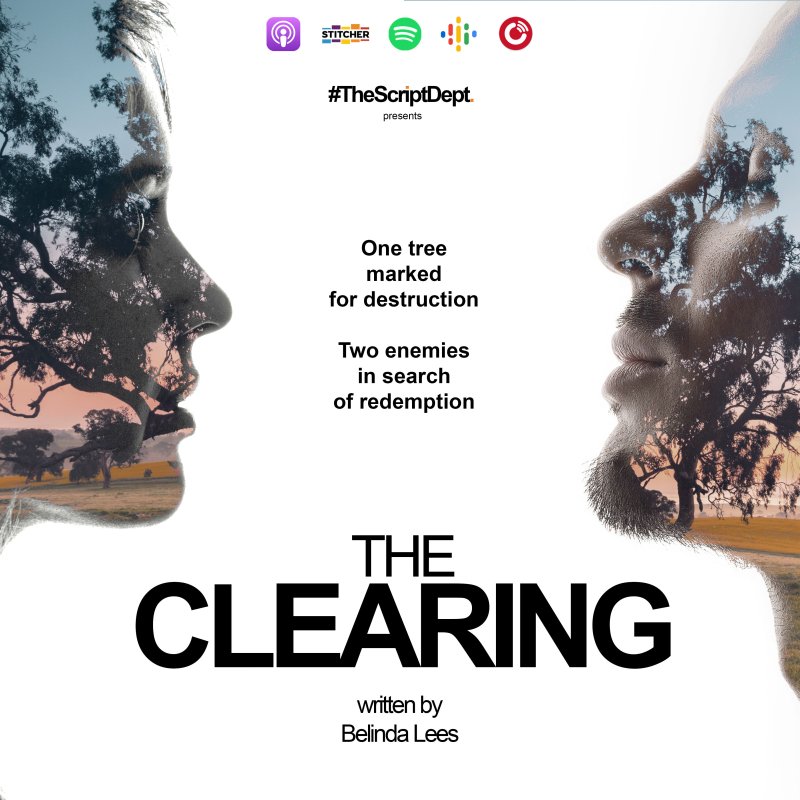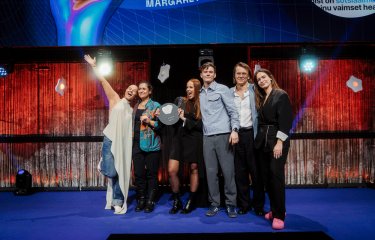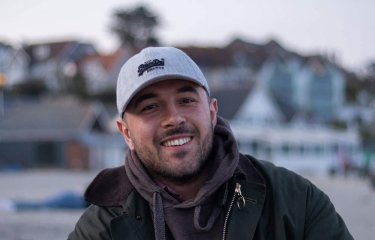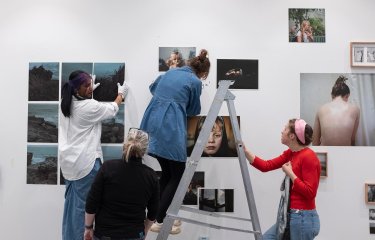Graduate Spotlight: Screenwriter Belinda Lees
06 June 2024

Belinda Lees is a screenwriter, playwright, researcher and Writing for Script & Screen MA (Online) 2020 graduate. With a style ranging from drama to absurdist comedy, Australia-based Belinda is prolific; she has written nineteen children’s plays for The School Magazine – Australia’s longest-running literary publication for children – together with poems for many other literary magazines. She is also award-winning; she has won both The Todhunter Literary Award and the Professor L. Marchant Award for her plays for adults.
We recently chatted to Belinda about her lifelong love of performance, her PhD project and how studying online opened her up to an international network of audiences and collaborators.
When did you first become interested in writing and performance?
Telling stories through performance and writing has been an essential part of my life for as long as I can remember. I have fond memories of creating plays to perform in front of the class at primary school. My first degree was in acting, through which I got some experience in directing. I went on to direct six productions for the university and came to appreciate the importance of the written word from a different perspective. My first acting job after graduating was in a touring puppetry play for six months, during which time I also wrote my first serious play.
The course opened me up to new people, new ideas, new opportunities, and wide audiences, and so I can literally say that it changed my life.
What made you choose to join Falmouth’s online master’s in Writing for Script & Screen?
I was searching for an online master’s in screenwriting and all signs pointed to Falmouth. I was very impressed by what the course offered and by the expertise of the course leader, Dr John Finnegan. I was working and so Falmouth’s course would allow me to study at home in my own time and complete the course in two years. I was also excited about the opportunity to work with international tutors and students.
What was the most exciting thing about being on the course?
There were so many exciting things about being on the course – I can’t narrow it down to just one! Working with tutors who are experts in their fields was excellent, as was learning the intricacies of screenwriting and meeting people from all over the world. During my time on the course, John created an agency called The Script Department and gave me the opportunity to turn my first short film, Smashed, into a fully produced podcast. Suddenly, my work had an international audience, and I had an IMDb credit. The course opened me up to new people, new ideas, new opportunities, and wide audiences, and so I can literally say that it changed my life.
How did the course help your practice to evolve?
My practice now has so much structure around it. The discipline of starting with a premise, developing that into a treatment, then a step outline, then a screenplay, while hitting all the marks of film story structure has made the process of writing not only manageable but so much more effective. We also learned about deep structure, in which the themes of the film impact the structure itself. I am now far more disciplined with structure in my practice, while also having a deeper knowledge of screenwriting. I also appreciate having a network of writers with whom I can share my work, and likewise, provide feedback on their work, which, in turn, strengthens my writing.

How did you find the experience of studying online?
I revelled in studying online. Living in Australia, it has always been my dream to study in Britain, and this format allowed me to do that. I found the whole experience very accessible, and with the regular one-on-one meetings with tutors, I felt like I had as much access to learning as if I was on campus. Working full-time, the online format allowed me to work at a time that suited me. If this course wasn’t offered online there is no way I could have afforded to attend in person. The content is managed in a very user-friendly platform, which includes forums with fellow students. Learning from a distance did not impact the ability to get feedback from tutors or fellow students, or to create friendships.
What projects have you been working on since graduating?
After graduating I started a PhD in screenwriting. John Finnegan and The Script Department have produced several of my short films, but most significantly, the feature film I wrote for my Final Major Project, called The Clearing. It is a four-part podcast, fully produced with cinematic non-diegetic sound. It explores the relationship between a young protestor and a Vietnam veteran police officer as they join the protest to save an 800-year-old sacred Birthing Tree – a tree in which First Nations Australian women would give birth – from destruction.
I wrote the screenplay in response to a real situation in Djab Wurrung country not far from my home in Victoria, Australia. The speedy production allowed me to create this story on a pressing social issue in a timeframe that enabled the work to really impact on audiences. To date it has had 10,000 downloads, and that doesn’t include streaming listeners; none of this would have been possible without John, Falmouth, or The Script Department.
What is your PhD exploring?
My PhD is exploring the approaches screenwriters might employ to represent women who are childfree as nuanced and complex characters in biopics. I noted that most 21st century biopics on childfree women represent the childfree protagonist as either regretful, apologetic or yearning about their childfree status. Or if the issue isn’t explicitly dealt with, implicit judgement is evident in a somewhat negative representation. I am writing both an exegesis on the research and employing the findings into the creation of a feature-length biopic.
What are your ambitions for the future?
Firstly, I hope to keep collaborating with John. Like all screenwriters, I hope to attract a production company to produce my screenplays. I’m also enjoying the academic research side, and so I hope to continue researching aspects of screenwriting.




